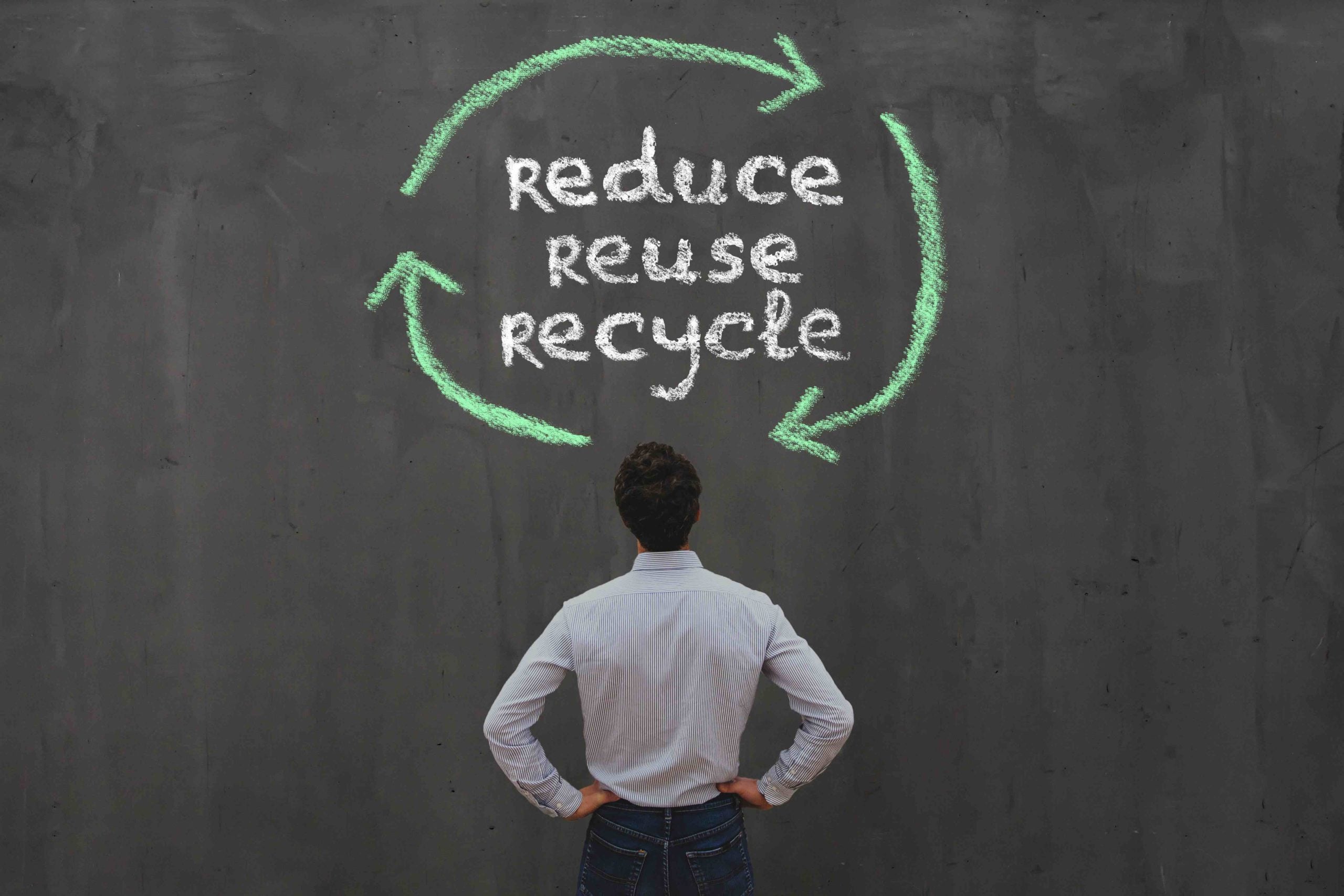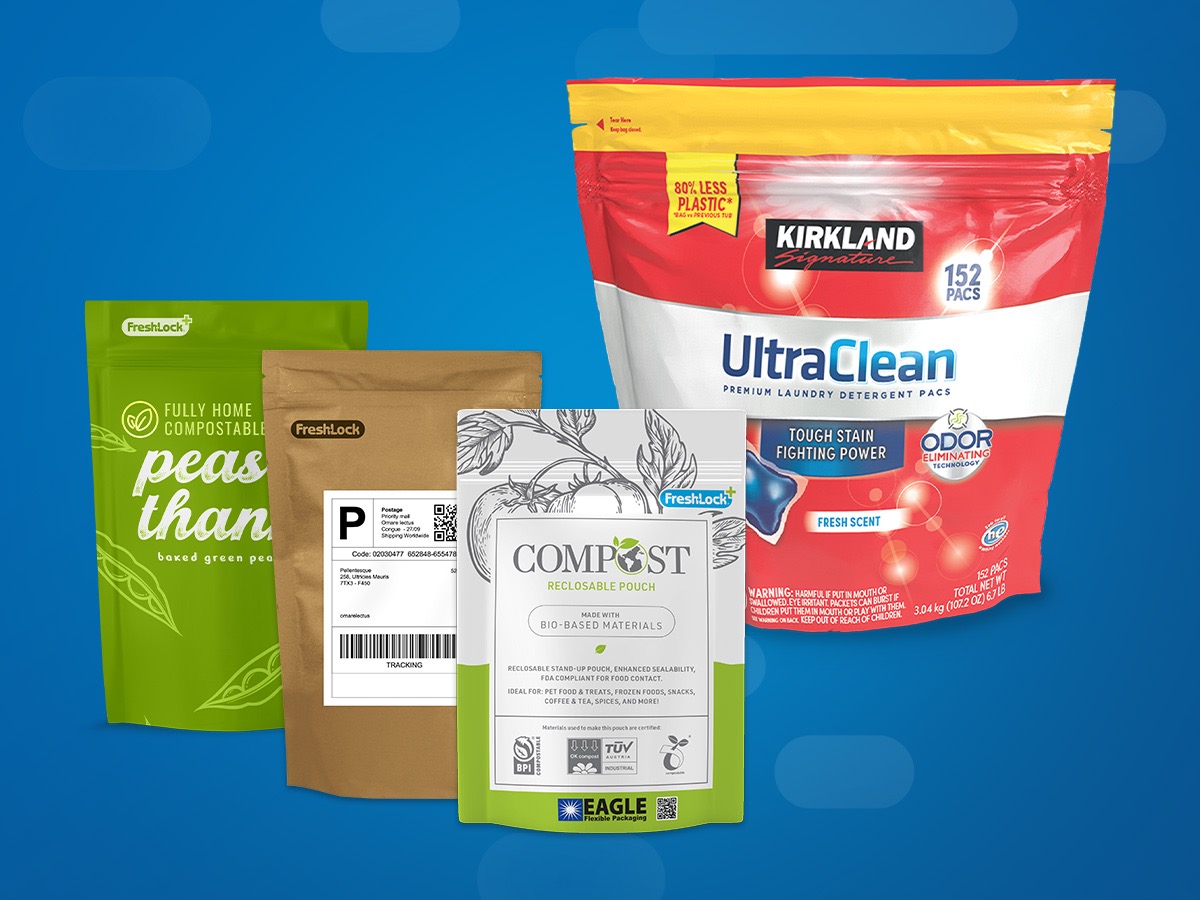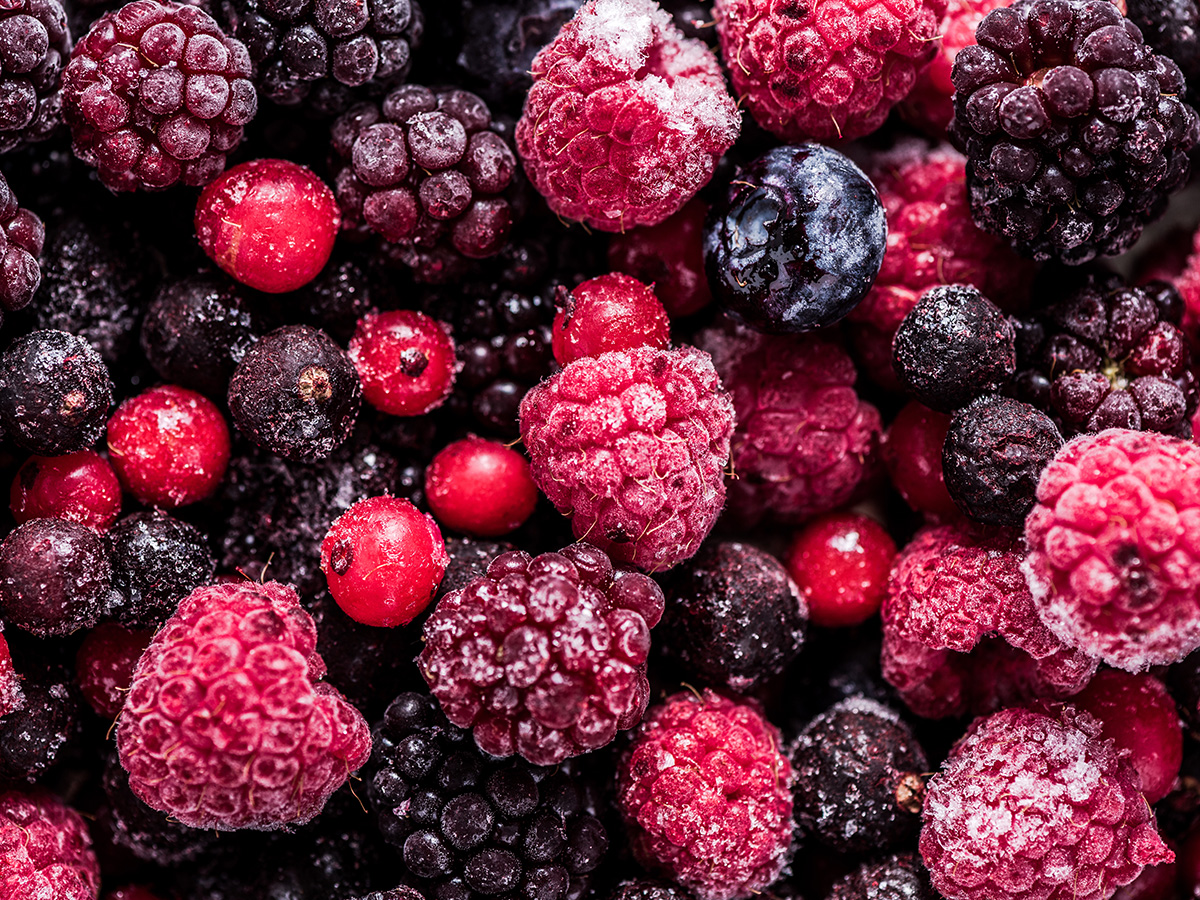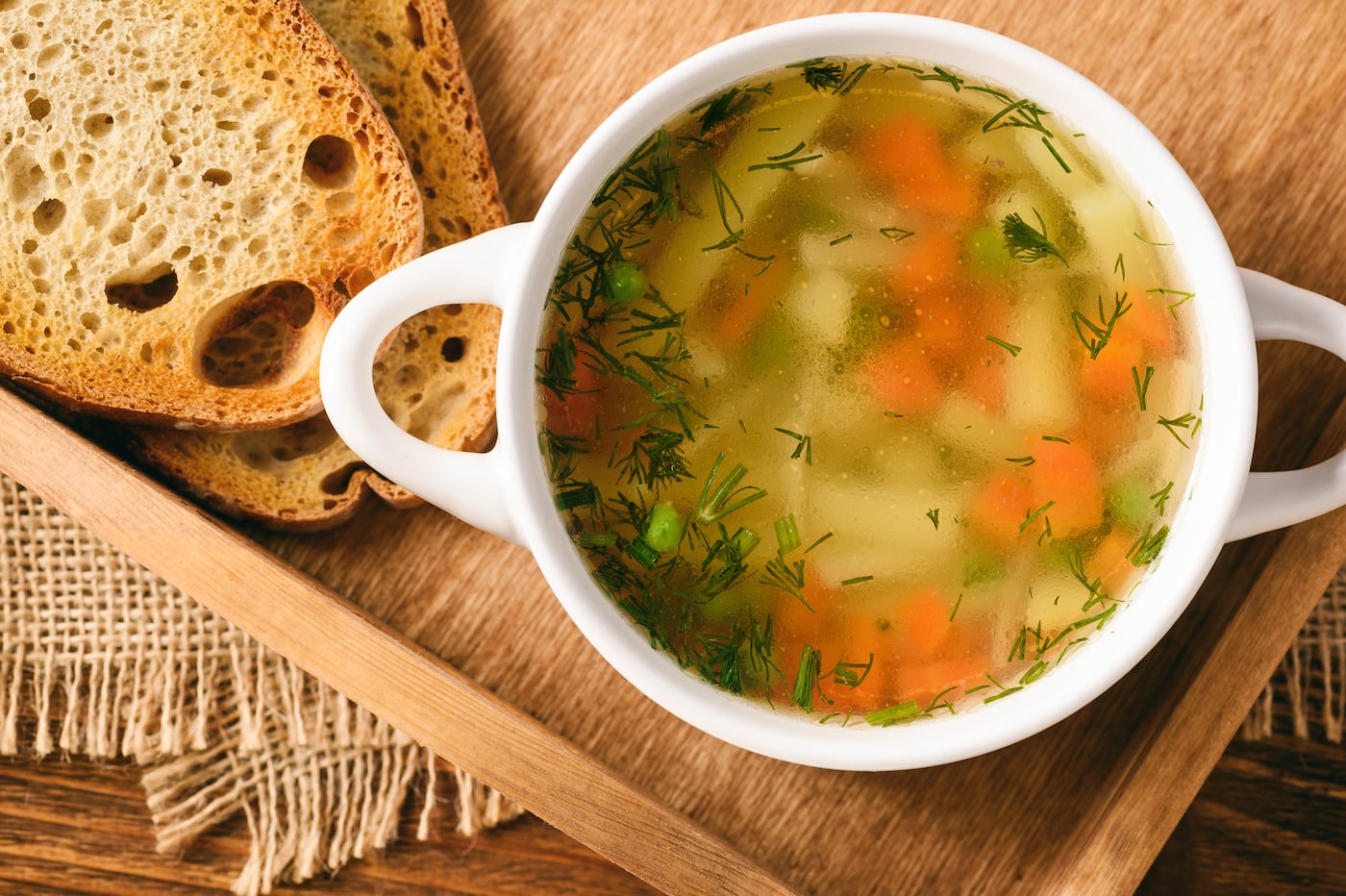
You’ve Invested Time and Resources and Are Now Using Sustainable Packaging. Don’t Forget to Educate Your Consumer.
You’re doing the right thing, committing to sustainability and taking concrete steps to use environmentally friendly packaging. However, this brand initiative is a journey, not a destination. What else can you do to fully embrace the circular economy and gain full advantage of your efforts? Mintel tells us that closing the loop with consumer awareness is one of four top trends impacting the global packaging industry and an opportunity to differentiate your brand.
Closing the loop doesn’t mean you have to have all the answers before educating consumers. It’s important to realize that many consumers know they are not perfect in their efforts, and they understand that companies are not perfect either. They are looking for honest information about sustainability, and a survey from The Hartman Group tells us that only 22% could identify a sustainable product while only 15% could identify a sustainable company. These eco-minded consumers are willing to engage with brands that provide authentic, transparent information showing commitment and progress. Brands that stand up for these consumers and invite them on the sustainability journey are likely to be rewarded.
Flexible Pouches Showcase the Sustainability Story
With flexible packaging, sustainability is a bigger story than just recycling. Flexible packaging provides options to help you close the information gap and show consumers how sustainability adds value across the entire packaging life cycle. For example, flexographic or digital printing enables your brand to stand out on shelves and click-to-cart interfaces with detailed and artistic designs that hero flexible packaging’s sustainable features.
Often, flexible packaging uses fewer natural resources and energy to manufacture and transport than other package formats, and it generates fewer CO2 emissions. You may produce a smaller carbon footprint throughout manufacturing and the distribution channels relative to other options, like glass or rigid plastics. Paired with closures that help to optimize shelf life and freshness, pouches act as a strong partner to help reduce waste and enhance product usage in multi-serving packages. For flexible packaging that is multi-material and not fully recyclable, you can still gain sustainability benefits through source reduction.
Consumers Want to Know How Recyclable Your Product Is
According to Nielsen, 73% of consumers say they would definitely change their consumption habits to reduce their environmental impact.
Consumers want to know more about the sustainability of products, yet many brands can’t show this level of detail on their packaging. With QR codes or AR-enabled packaging, you can extend the conversation beyond the package to attract younger consumers, like Gen Zers, who are more digitally motivated and seek out sustainable information. The key is to choose what information is most relevant for your brand and the most powerful driver for your target consumer.
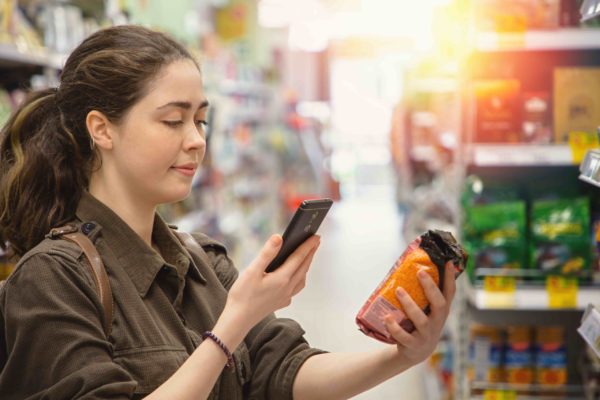
By design, a flexible standup pouch naturally gives your brand a “billboard” for graphics and messaging about product and package benefits. Brands can increase their sustainable credibility with standardized labeling and third-party certifications. The How2Recycle standardized labeling system clearly explains how flexible packages are recyclable if properly deposited at a designated in-store recycling drop-off location. Using this concise graphic helps increase visibility for the recycling/reuse program and drives compliance, all while building brand awareness. Brands should be proud to integrate the How2Recycle label in their packaging and make sure it receives proper on-pack real estate. Don’t do the work to provide a green solution and then hide the instructions.
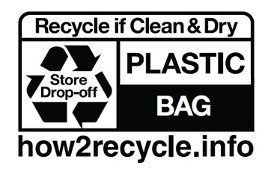
Finding the Right Closure
Stand up pouches, with advancements in mono-material constructions, offer fully recyclable options and waste elimination opportunities when combined with compatible closures like those found in the Fresh-Lock® 8000 series. The goal is to choose a closure that aligns with your sustainability initiatives without sacrificing package functionality for the consumer or hindering the manufacturing process.
The new Fresh-Lock® zipper style 8253 is blended for compatibility with a wide range of PE recyclable films, allowing for 100% package recyclability. This Zipper Top™ closure is also fully extruded for a single component process, making it a more sustainable reclosable pouch top option while eliminating delamination concerns. Another example is Fresh-Lock® style 8113, a double lock zipper used on the fully recyclable Bear Naked® granola pouch.
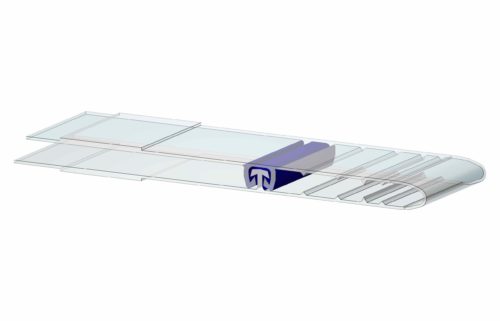
Image: Fresh-Lock® zipper style 8253
For added protection, Fresh-Lock® zipper style 8503 has an enhanced sealant layer that adheres easily to sustainable film structures yet has 3 sets of locks and audible tactile sensation to help consumers know the package is closed, and Fresh-Lock® child-resistant zipper style 8511 offers food safety, child protection, and recyclability on small pouches 4-7 inches wide.
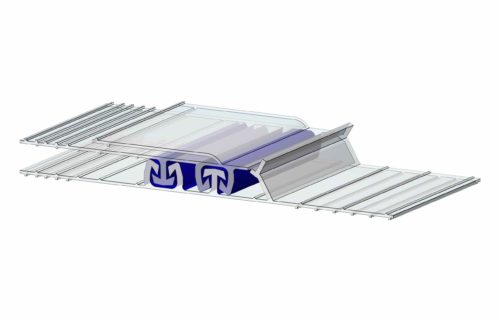
Image: Fresh-Lock® child-resistant zipper style 8511
Even though research tells us that sustainability sells, educating eco-conscious shoppers means understanding that their purchase decisions are based on multiple factors like convenience, price, and awareness. The messaging sweet spot is between “healthy for me and healthy for the world.” You must communicate that the entire package, including the closure, is a sustainable option that helps to optimize product shelf life, reduce food waste, and offer a quality user experience.
Sustainable Claims Remain Healthy Even During COVID-19
In a world where consumers are increasingly selective based on their knowledge of a brand’s values, sustainability does sell, even during uncertain times.

A recent study by IRI and the NYU Stern Center for Sustainable Business reports that even during COVID-19, sales of sustainably marketed products continue to grow, capturing a “17% market share during the first half of 2020.” This survey builds on the researchers’ Sustainable Market Share Index showing that even though products carrying a sustainability claim were less than 16% of the market across all CPG categories, they “delivered 55% of market growth between 2015 and 2019.” Sustainable packaging claims can grow your share of the market today and help ensure relevance tomorrow.
You Talking to Me?
With regards to sustainability, there are definitely consumers who seek to “buy the change that they wish to see in the world.” Brand messages must resonate authentically with these motivated, eco-conscious consumers because they’re very willing to walk away if the information doesn’t add up. Though there is increased interest in sustainability across all segments of the population, we know that younger consumers, upper income, women, and more educated consumers tend to scrutinize packaging messages more carefully. Within these groups, the prime targets are Gen Z and Millennials.
Both Gen Zers and Millennials are more likely than older generations to believe that flexible packaging is sustainable and are often willing to pay more. According to IRI, these two generations make up 45% of the population, so it’s critical to connect with them and create ongoing growth since they’re going to be a key shopping cohort for the next 40-50 years. Their combined purchasing power of nearly $3 trillion dollars makes them a huge target (YPulse).
The Sustainable Story Continues
Given the speed of change and shifting needs, flexible packaging with compatible closures continues to deliver an optimum consumer experience to not only meet but exceed expectations for the sustainable future. Consider educating consumers with the powerful story that flexible packaging can help tell about your brand’s sustainability journey. You’ll be closing the loop, building awareness with your consumers, and differentiating your brand.
Contact the Fresh-Lock® team to learn more.

 Back to Blog
Back to Blog